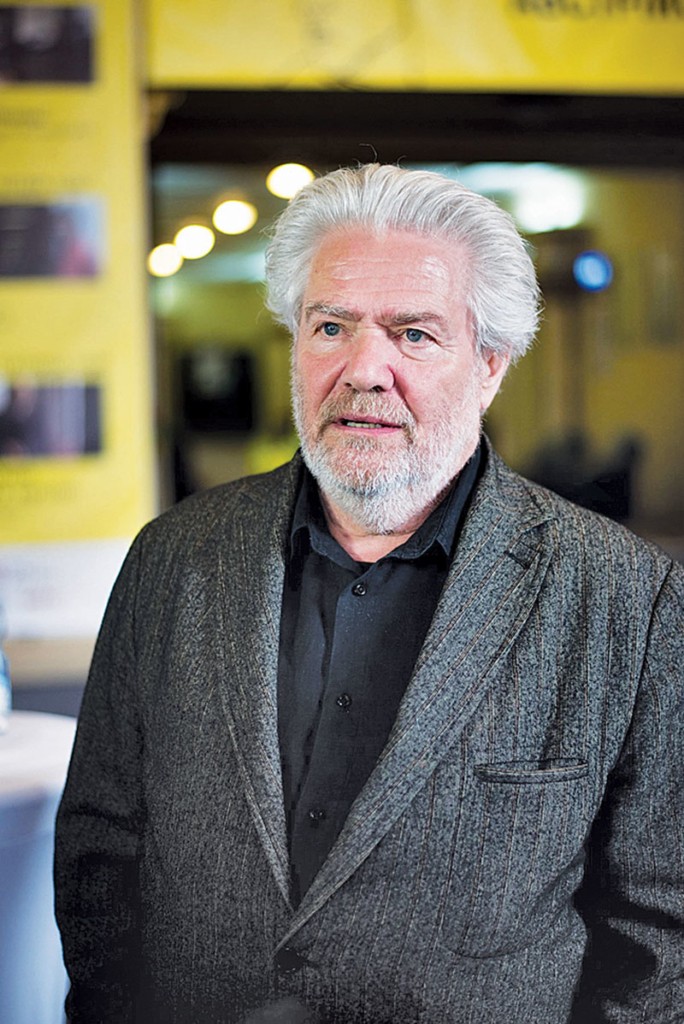The sixth annual film festival Austrian Film Week kicked off in Kyiv on April 19. Joining Kyiv are four other Ukrainian cities — Dnipro, Chernivtsi, Kharkiv and Odesa.
The festival is organized by Austrian Cultural Forum and Ukrainian film production and distribution company Arthouse Traffic. It is sponsored by Raiffeisen Bank Aval.
Each year since 2012, it brings 5 or 6 of the best new Austrian films to Ukrainian audiences.
This year the festival in Kyiv opened with a screening of a biography drama “Egon Schiele: Death and the Maiden,” attended by its director Dieter Berner.
The film unveils the story of Schiele (1890–1918), one of the greatest and most famous Austrian artists, whose life revolved around two women: his sister and first muse Geri and 17-year-old Wally, arguably the only love of his short life.
Other films that feature in the festival are two biographical movies “The Dreamed Ones,” shown on April 20 and uncovering a story about a rising poet, Paul Celan, whose Jewish parents died in a Nazi concentration camp and who falls in love with a daughter of a Nazi soldier.
On April 21, the film “Stefan Zweig: Farewell to Europe” will be shown. It explores the life of the 20th century Austrian novelist Stefan Zweig, who traveled around the world trying to escape the specter of Nazism.

Austrian film director Dieter Berner attends the opening event of Austrian Film Week on April 19 in Kyiv. (Courtesy)
A documentary “Safari” by Ulrich Seidl, to be shown on April 22, uncovers the sad and atrocious hobby that is sport hunting. The film focuses on European tourists who come to African countries in order to hunt for rare and beautiful animals and then take photographs with “trophies,” their dead bodies, which they later bring home to use in interior designs.
A selection of films from Ars Electronica, an annual cinema festival held in Austrian city of Linz, will close off the Kyiv part of the festival on April 23 by showcasing the best short films from different countries around the world.
In order to choose the films that are shown during the Austrian Film Week each year, representatives of Arthouse Traffic and the Austrian Cultural Forum watch dozens of films from a list compiled by the Austrian film festival Diagonale team, along with the films from Berlin film festival and other Austrian films produced within the last year. Then the Austrian Film Week team collectively decides on the best ones.
“When we just started the festival, it was not very popular,” Arthouse Traffic program director Illia Dyadik told the Kyiv Post. “Sadly the Ukrainian audience was mostly not familiar with Austrian cinematography. But Austrian films are very strong and have their own distinguishing features, something that is clear from the films we show. In the last years you can see that tickets for every festival screening were sold very fast.”
This year Ukraine and Austria celebrate 25 years of diplomatic relations, along with many other nations. But the films are not related to the anniversary celebrations, Dyadik said.
Bringing Austrian cinema to even more Ukrainian viewers is something Arthouse Traffic and Austrian Cultural Forum strive to do.
To achieve the goal, the representatives of the Austrian Cultural Forum even offered to screen the festival films for free in Dnipro and Chernivtsi, where the venues of Dnipro’s City Library and Austrian-German Cultural Center German House had been chosen for the occasion.
“On one hand it is a good thing because more people will get a chance to visit the festival, especially students or representatives of working classes,” Dyadik said. “But on the other, watching the movies in cinemas, like the attendees of the festival in Kyiv and Kharkiv do, is more comfortable.”
The format of the festival is not likely to change, but organizers are trying to “develop the professional side of the festival” by attracting more people from the cinema industry.
Austrian Film Week is held at Kyiv Cinema (19 Velyka Vasylkivska St.) on April 19–23. Tickets for each screening cost Hr 80. The films are shown in their original language with Ukrainian subtitles.



